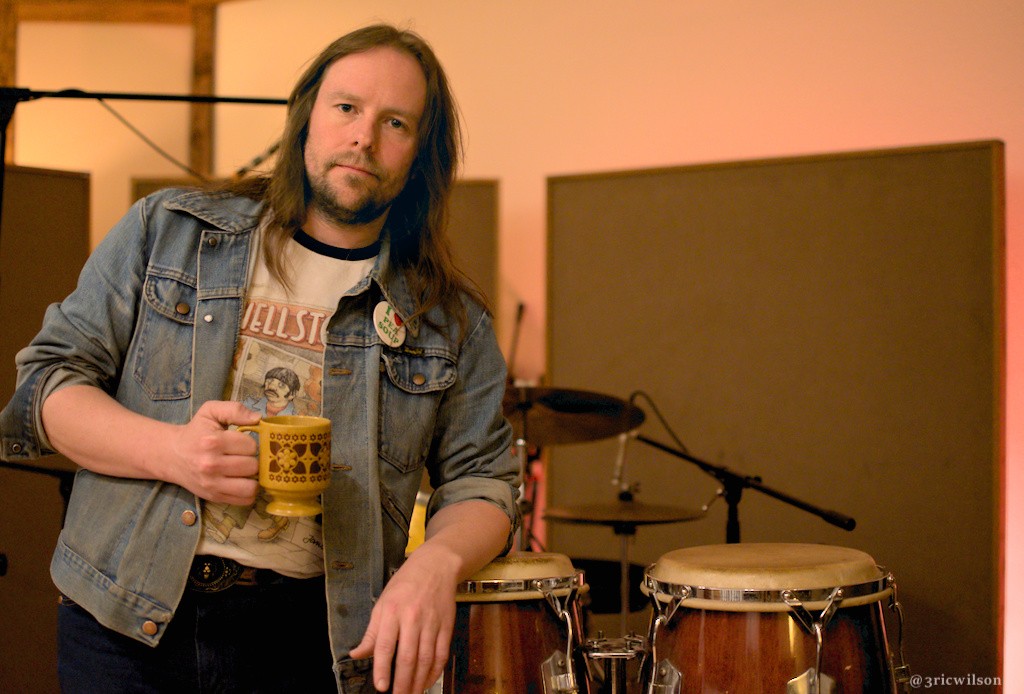We’re excited to introduce you to the always interesting and insightful Jimmy Wildcat. We hope you’ll enjoy our conversation with Jimmy below.
Jimmy, looking forward to hearing all of your stories today. One of the toughest things about entrepreneurship is that there is almost always unexpected problems that come up – problems that you often can’t read about in advance, can’t prepare for, etc. Have you had such and experience and if so, can you tell us the story of one of those unexpected problems you’ve encountered?
At the beginning of 2015, I had just turned 29 and I was beginning to feel stuck in my life. Six years earlier I had earned my bachelor’s degree in Radio, Television, and Film, moved to Austin, and spent the next few years building a modest career as a songwriter and live performer on weekends and evenings, outside of whatever day jobs I could find that would indulge my requests for time off to tour and play shows. During that time I was also pursuing home recording as a hobby and occasional paid gig. At 29 years old, I was anxious about entering my thirties without a clear path to advance my life, either within the music industry or outside it. It seemed like my musical advancements had plateaued and my work experience wasn’t likely to lead to any more rewarding or higher-paid work.
So when my older brother Seth, an experienced and (it seemed to me at the time) financially successful-enough recording engineer, told me he was opening a new recording studio and offered me the chance to work assisting and learning the art from him, I didn’t think twice. A mutual friend and fellow recording enthusiast had an old house on the east side that he was willing to dedicate to the cause, and the three of us worked for the next few months converting it into an unglamorous but workable recording studio. We named the new endeavor Sweetheart Studios.
Sweetheart’s doors opened in July of 2015, and our musician friends started trickling in. Over the next three years we recorded many hours of music, I had the privilege to record incredibly creative and talented artists, and I was slowly, maybe even lazily, learning the unique skills involved in creating a great record. I was comfortable enough, satisfied with the path I’d landed on, and not particularly motivated to put in the work and study I needed to become a capable recording engineer. Despite my attitude, Seth managed to teach me the essentials and gave me a solid foundation on which to build a proper and effective skillset. Even some of the more advanced knowledge has stuck with me, things I didn’t understand how to implement at the time, but that come back to me now and then when I come across an unfamiliar obstacle.
By 2018 I was getting steady engineering work, but still leaning hard on my brother’s willingness to take on the role of the expert. As the rightful head-honcho, he had to deal with the more difficult and demanding parts of running sessions, maintenance and repair of the studio and recording gear, not to mention the care and effort that goes into building a good professional reputation. I was content ignoring minor details like these, until they all fell on me at once.
That summer, Seth was diagnosed with cancer. By the autumn he was too sick to work, often in too much pain to even get out of bed. Eventually he was moved to a hospice facility, where he died three days later. I didn’t perceive it then, but the period following his death was a pivotal point in my life. In addition to losing one of the closest people in my life, I was left with all the responsibilities of sustaining the business that I had so far been mostly able to avoid, and I didn’t even have a clear idea of what they were.
What followed was a humbling, uncomfortable, and ultimately priceless learning experience. I did my best to dive in, and one mistake at a time I began to understand what dedication is, Seth had left me with the tools, skills, and understanding I needed to make it work, and now it was up to me to implement them or else let the dedication he had put into Sweetheart become only a part of the past.
I firmly believe that it was only by going through that chaos and accepting the responsibility, trusting that I would find a way to solve whatever problem came up, that I’ve been able to find the successes that I have. Realizing a vision to its fullest necessarily involves accepting risk and unexpected problems. It requires faith in your own abilities, however limited they may be at the outset, and an honest dedication to the value of what your work is contributing.
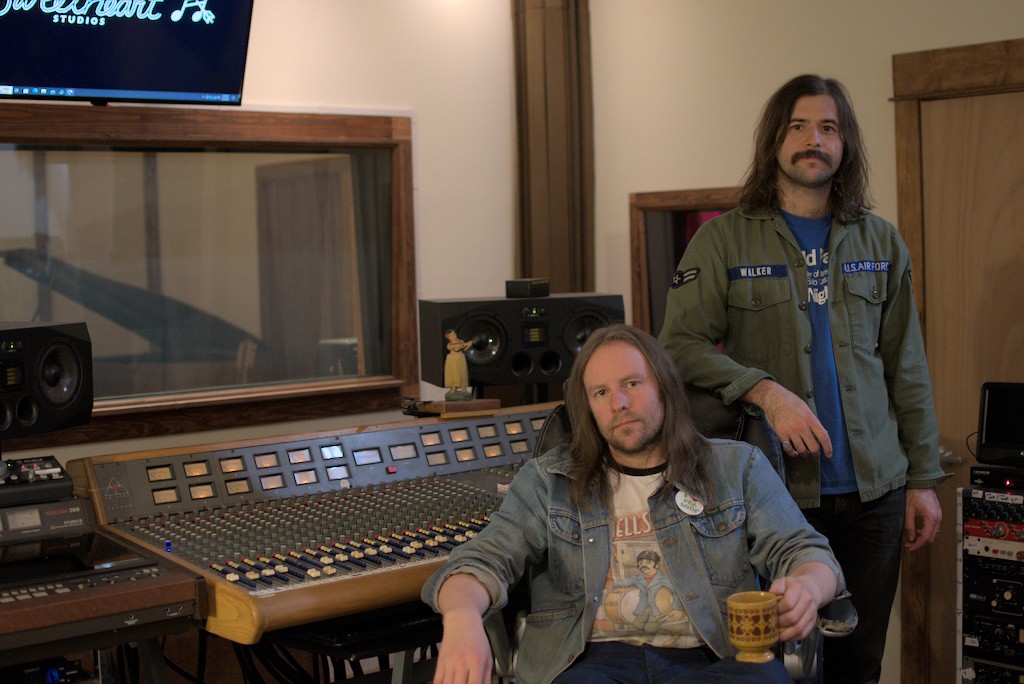
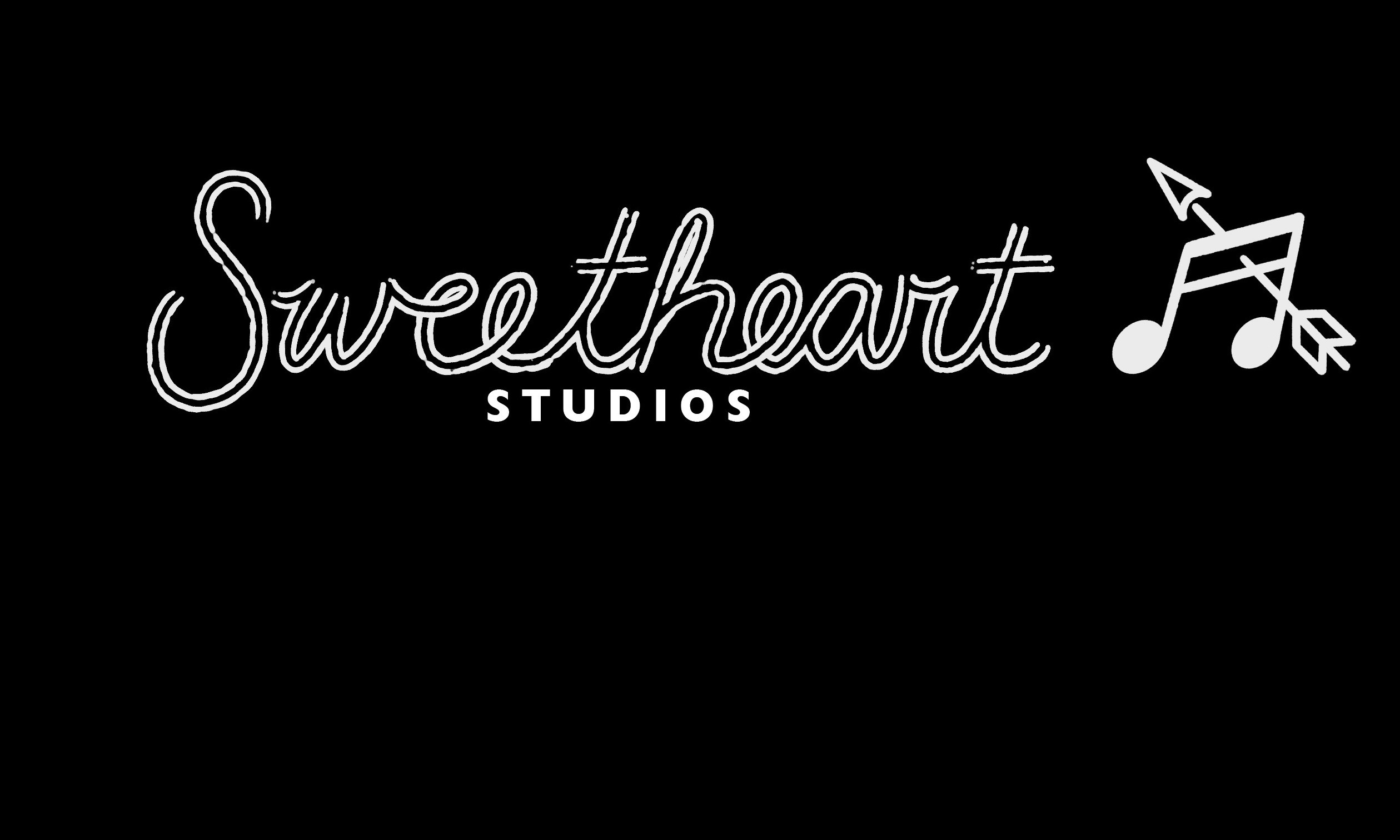
Jimmy, love having you share your insights with us. Before we ask you more questions, maybe you can take a moment to introduce yourself to our readers who might have missed our earlier conversations?
While the function of Sweetheart Studios LLC as a business entity is to oversee the maintenance and use of our recording space in Elgin, the name Sweetheart Studios also functions as a title for the living, collaborative creative project that includes the engineers, musicians, artists, and community who contribute to the artistic output that we collectively produce. The studio facility as it is today was planned and designed, and is operated by, myself and Ryan Lee. Ryan and I are both audio engineers and musicians, as well as avid pursuers of the cultural, aesthetic, and personal human histories that recorded music embodies and preserves.
Sweetheart started in 2015 with the goal of providing musicians with a recording service that was affordable to the average working musician, while not compromising their ultimate vision for their project. That goal has remained our fundamental focus, from first opening the original location in Austin with my brother Seth, to Ryan’s joining Sweetheart in 2019, to now, as we expand our recording capabilities in a new location designed to inspire and better capture artists’, and our own, best work.
As musicians and members of the local music community first, it’s always been apparent to us that Texas is full of talented, unique songwriters and musicians who have few if any practical options for making their records the way they imagine them. We think we’ve found the sweet spot, providing digital and analog audio recording, mixing, and mastering services as affordably and efficiently as we can, while keeping sight of our central aim — to produce records that are faithful to the artists’ vision, and exceed their expectations of what a studio of our stature can deliver.
Over the years, improving and adding to our skills, facilities, and equipment in initially small, steady steps, we were able to evolve our process to better suit the needs of the musicians and the specific community we work within. Ryan and I were then able to use that understanding to inform the design of our new recording space, creating a studio that’s tailored directly to our clients, and to our own workflow as engineers. Most of the artists we work with live in or around Austin, and this new location serves as an escape from the city, freeing visitors from daily distractions and stresses during the recording process. The studio’s spacious live room and multiple sound isolation rooms make it well suited for recording full bands simultaneously, and the homey, relaxed atmosphere allows artists to loosen up and give their best performances.
Our new hometown, new clients and many long-time returning clients have been incredibly encouraging and supportive through our years of adaptation and growth. We truly love that we’ve had the opportunity to work alongside these folks, and count them as friends and members of our community. We look forward to hosting new artists, making more great records, and continuing to relearn and readapt in the coming years . Most of all, we feel grateful; through our community’s support of our vision, we’ve been given the chance to take part in creating so many pieces of Texas music history.
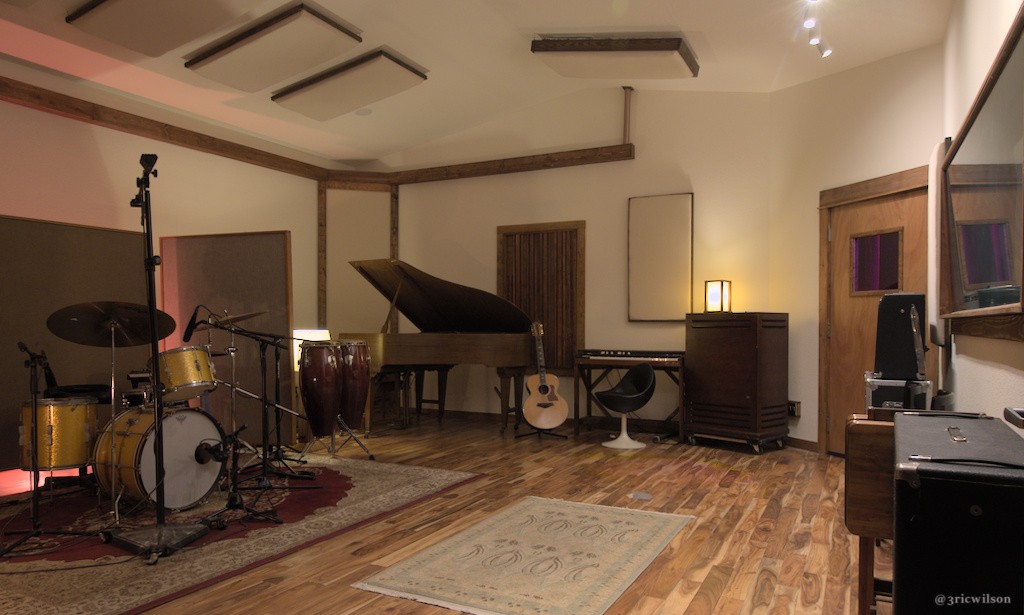
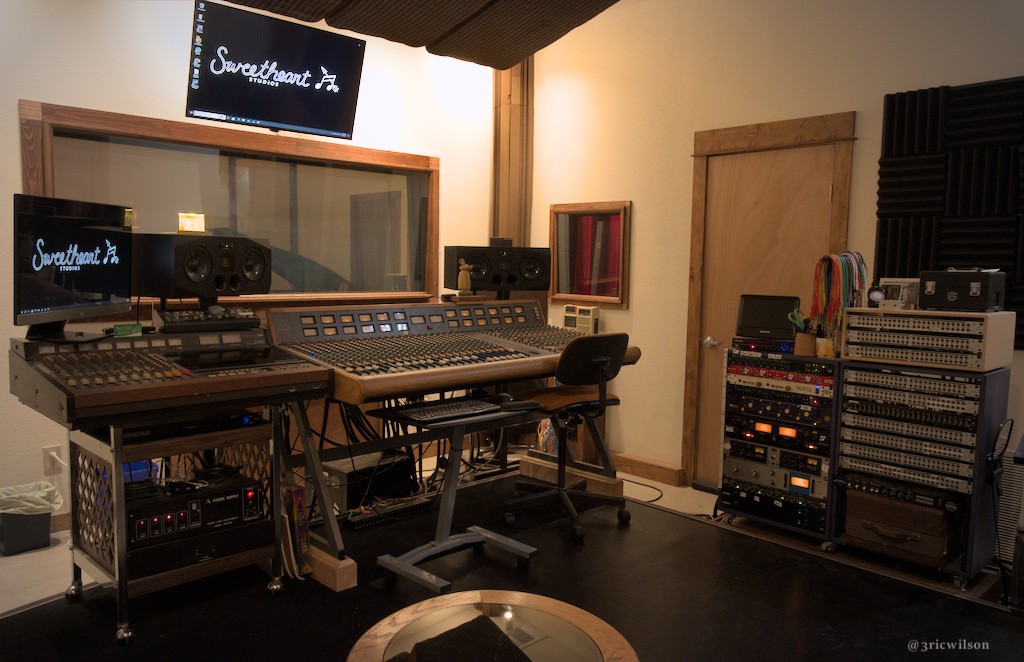
We often hear about learning lessons – but just as important is unlearning lessons. Have you ever had to unlearn a lesson?
With studio production, as it is with any endeavor that combines craftsmanship and artistic reasoning, it’s necessary (or at least extremely useful) to first master a certain degree of comprehension in the somewhat rigid technical aspects of the process. You begin by learning how to properly use the tools, and the rules of technique and aesthetic composition that have been established over time by accomplished engineers and producers in the past. For most engineers, myself very much included, this isn’t accomplished quickly, and in fact proves to be a lifelong process that is never entirely “complete”.
As you gain more understanding, and experience more successes and failures, it’s easy to lose sight of the essentially playful, creative nature of the work. A recording session can start to feel like taking an exam, and then you begin to always feel like there must be some rule you’re forgetting, therefore inadvertently undermining the quality of the final product. This attitude often leads to mixes that feel lifeless and flat.
I’ve been there, and wondered why I wasn’t enjoying the work. That came through in the results too, or at least I believed I could hear the change. I’ve learned that it’s vitally important when doing this kind of work to be open to going against conventional wisdom when it serves the project to do so. It’s not an exam to be passed or failed, it’s a piece of art, which demands above all else the input of human expression and creativity in order to be fully realized.
Can you tell us about what’s worked well for you in terms of growing your clientele?
Even in Austin, record production isn’t a business that would benefit much from taking out public ads. Recording services are something sought by a niche demographic, and one that utilizes and relies heavily upon word-of-mouth and the importance of professional reputation. For me, unquestionably the biggest factor in getting sessions booked and expanding my client base has been my previous clients recommending me to other musicians. I’ve given out quite a few business cards to performers after shows, and when they tell me that they’ve heard about my studio from someone I recorded, it’s a pretty safe bet that I’ll end up working with them sooner or later.
It’s convenient that albums I record are readily available on streaming platforms, as an advertisement and example of my services.
Contact Info:
Image Credits
Eric Wilson


